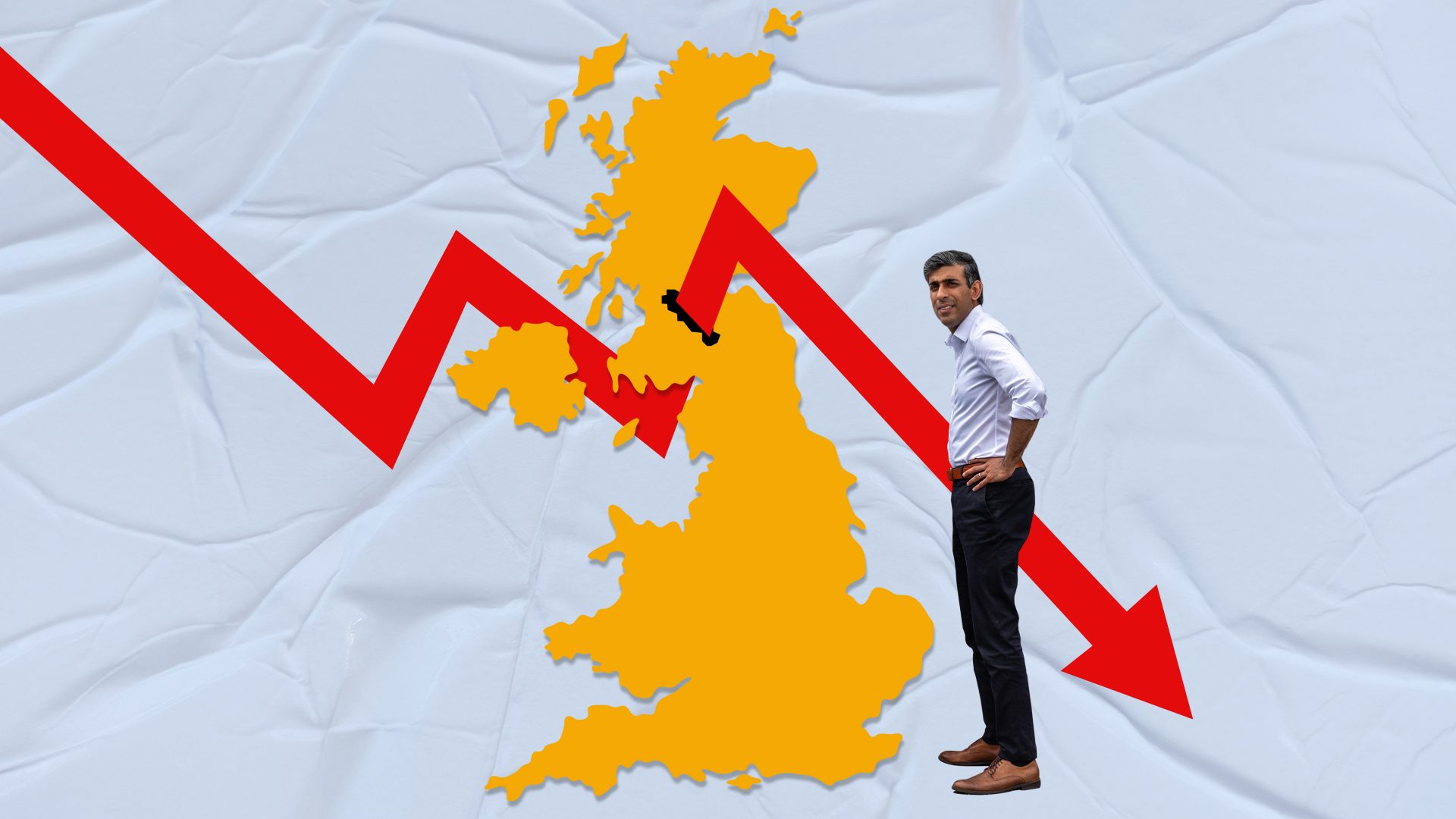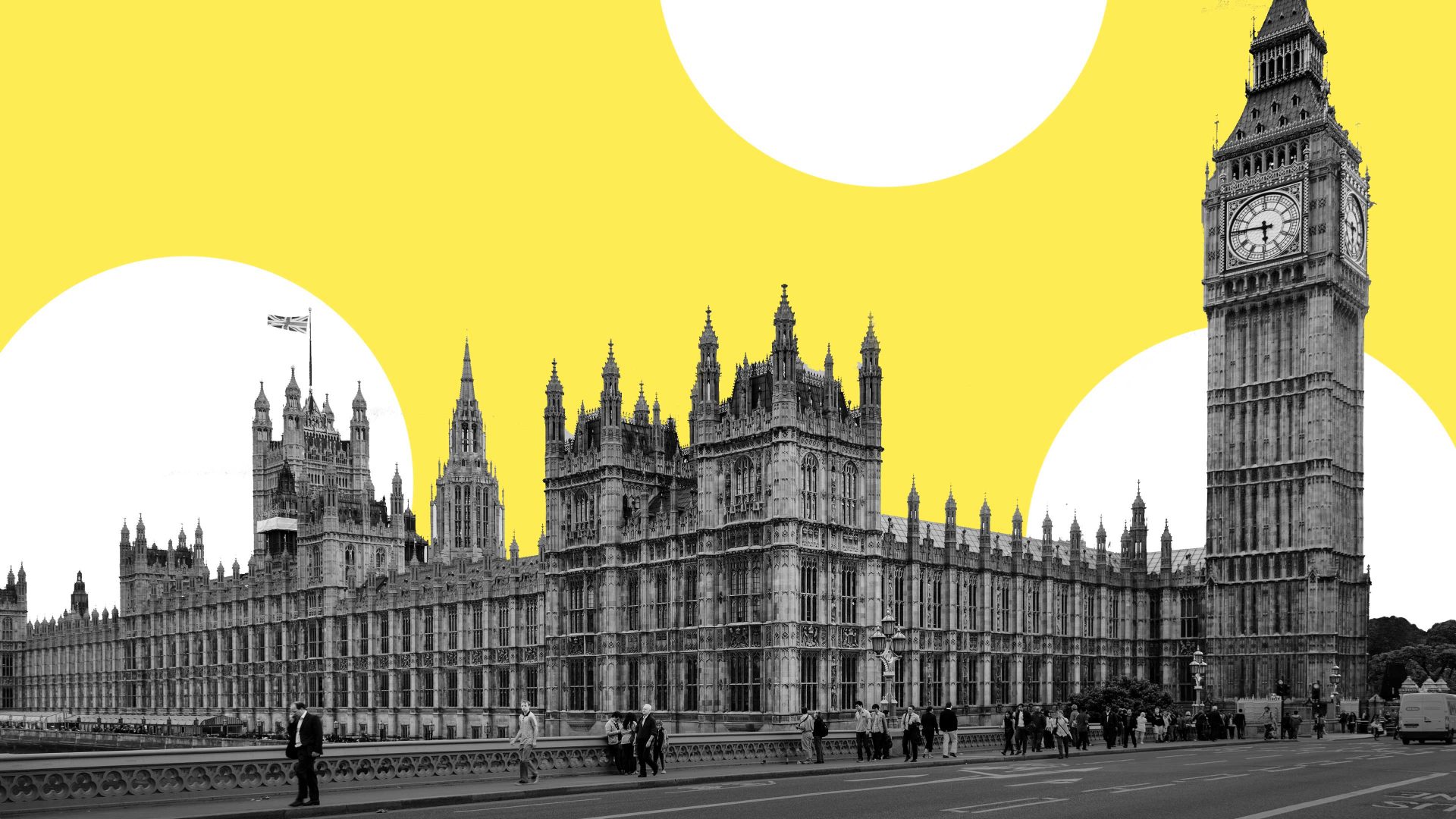Liz Truss and Kwasi Kwarteng made a dash for growth – it didn’t go according to plan. But now Rishi Sunak confronts a bleak economic landscape, and the possibility that Britain will get stuck in prolonged recession. Economic growth suddenly looks like a distant prospect. How realistic, today, is the ambition of achieving strong economic growth at all?
When I was close to finishing my PhD in economics at Harvard in the mid-1980s, a student called Brad DeLong joined the programme. He already had a reputation for being formidably brilliant. He went on to work alongside the US Treasury secretary, Larry Summers, during the Clinton era and was one of the earliest to embrace the possibilities of online debate. Before long his blogs were getting huge attention and he has now become one of the most prominent and influential bloggers in economics.
It is not surprising, then, that DeLong’s new book, Slouching Towards Utopia: An Economic History of the Twentieth Century, has been so eagerly awaited. The title alludes to the combination of huge gains in economic prosperity during the “long 20th century”, which ran from about 1870 to 2010, and also the discontent and challenges so evident in modern capitalism. We fired up Teams, with his dogs barking in the background, to discuss the new book.
DeLong identifies the second industrial revolution as the start of the 20th century, as it marked the turning point in the experience of ordinary people, more and more of whom subsequently escaped a previous life of drudgery. The long 20th century ended in around 2010, which is when, he argues, capitalism went “ex-growth”. At that point, he says, economic growth as we know it more or less halted, with lasting economic, social and political consequences.
DeLong’s book shows how late-19th century technologies interacted with new economic and social institutions to push economic growth from less than 0.5% to more than 2% a year. “1870 really is a watershed, boundarycrossing moment,” he says, “in terms of how rapidly the industrial research labs and then the large-scale corporate deployment of invention takes place… Earlier inventors had to be the scientist, the engineer, the financier, the marketer, the manager.” But then came a period in which the process of technological discovery and development became part of how large organisations worked.
He gives the example of the inventor Nikola Tesla, a deeply eccentric electrical genius who created the modern AC electrical system. Tesla had “negative social intelligence,” says DeLong, “and on his own was incapable of accomplishing anything”. But things changed when “George Westinghouse found him and put him inside the Westinghouse industrial research lab and then deployed its products through the Westinghouse Corporation, which got financing from JP Morgan and George Fisher Baker. And they were off to the races. That was only possible after 1870.”
According to DeLong, “Even the steam engine was not decisive. It was rather the creation of a system by which you get not one invention but repeated inventions, and repeated inventions across a fairly broad space. In Britain, in Germany, in Belgium and in the United States, there emerged groups of people whose business was not just to keep the machines running but to improve them and to embody their knowledge in physical form, in particular machine tools that then could be shipped all around the world.” In other words, technological innovation turns out to be the easy part. Figuring out how to develop and spread a new idea is much harder.
Once the watershed was crossed, however, a dynamic was unleashed that incorporated not only what the economist Joseph Schumpeter called a “gale of creative destruction”, but also a reaction by society against the social consequences of how huge wealth is created. This was articulated by Karl Polanyi in his 1944 book The Great Transformation, which argued that markets are not just economic but also social and political structures.
How does that dynamic between markets and society play out? Growth of 2% a year means that incomes roughly double every generation, but as new inventions and processes surpass existing ones, making them redundant, there is a cost to this economic advance. As DeLong put it, “That doubling carries industries along with it and creates immense amounts of wealth. But it also destroys entire industries, occupations, livelihoods and communities, and destroys them every generation. And then in the next generation, it destroys another set as well. With the hardware of the forces of production being thus rebuilt every generation, the sociological running code of society, which is running on top of it, has to be rewritten every generation as well.”
DeLong adds: “Friedrich von Hayek [the Austrian economist] pointed out that you’ve got to let the market economy rip in order to take advantage of technological possibilities. But Polanyi’s point is that the market economy only cares about property rights. Only people with property rights have any form of social power at all.” But ownership is not the only economic and social right that people value. Their income and way of life that derives from their employment and social circumstances are both precious and people react strongly to losing them. “That’s something people simply will not stand for. They will demand a different distribution of social power, and that some rights – that are not property rights – be recognised.”
The experience of our generation (we were both born in the early 1960s) conforms to this pattern. That was the final decade of the postwar “golden age”, when economic growth was rapid and, as the book puts it, “People in the global north had come to expect to see incomes relatively equally distributed (for white guys at least), doubling every generation, and they expected economic uncertainty to be very low, particularly with respect to prices and employment.” But when that economic model stopped delivering such favourable outcomes, high expectations gave way to dissatisfaction. “The bar was raised. The politics and economies of the late 1970s did not clear that bar. And so people looked around, searching for ideas about how to reform.”
The post-1980 era of globalisation, ushered in by the Thatcher-Reagan years, has brought some substantial economic benefits, including a reduction in poverty due to China and India’s partial turn to the market economy. But, according to DeLong, societies now face a much tougher challenge. “We’ve solved the problem of baking a sufficiently large economic pie, or are well on the way to solving it,” he says. “That was supposed to be the hard problem. But somehow the problem of slicing and sharing and tasting properly have still managed to elude us.”
Naturally, any reader in 2022 will want to know what comes next in this historical narrative. The current war-driven energy and inflation shock – on top of the pandemic, on top of the financial crisis – means many people in those developed economies that are now used to growth have seen no improvement in their living standards for a decade or more. The software of society – the institutional framework for co-ordinating decisions – has failed to keep up with where the post-1980 markets have taken us, and yet the problems faced globally are colossal. We have gone from 2% a year growth to zero, and from generational doubling to stasis. It is quite a turning point.
DeLong promises he will update his book after this month’s mid-term US elections – and then again every year thereafter. He adds that if he had written the book in the late 1990s, or early in the pandemic – when it was due – it would have been very different. Indeed, he is eager to say, many histories are possible, and he has 2,000 draft pages on the cutting-room floor.
One of his current conclusions is clear: the long 20th century has ended. Capitalism has gone ex-growth, meaning that the era of 2% a year is over. Technology will not save us now, at least not by itself. The hope that went with all the internet tech hype has evaporated because the institutional and political structures of the global economy have prevented the coordination needed to solve major problems.
In the UK, most people have been feeling the effects of ex-growth since the mid-2000s. Productivity is the measure of what goods and services we get out of the economy for the resources (labour, capital, components and materials) we put in. It has been flat for almost 20 years. This matters because without increases in productivity, living standards do not improve, except, that is, for the people at the very top of the income scale. But the middle and bottom of the income distribution have not, meaning that people’s incomes have stagnated – especially tough when inflation is heating up.
This slowdown is a problem. The reason is what the US economist Ben Friedman termed “the moral consequences of economic growth” in a classic book of that title. No growth means that any redistribution of income or reduction in poverty cannot happen through the expansion of the economy. Instead it must be imposed from above, which must lead to political conflict. This is not an abstract concern, for surely this is part of the explanation for our current, ill-tempered political dynamics. Truss’s disastrous “mini budget” is one such example. Sunak’s expected spending cuts and tax rises will be another. Such policies would weigh heavily on a stagnant economy with crumbling public services and growing queues at food banks.
When I ask DeLong what he thought of the pandemic, his answer is: “Well, it was better than the Black Death.” There is some humour among the bleakness. But the challenge of solving our economic problems is immense. My conversation with DeLong, like his book, was enjoyable but hardly comforting.
Diane Coyle is Bennett professor of public policy at the University of Cambridge and author most recently of Cogs and Monsters: what economics is and what it should be



